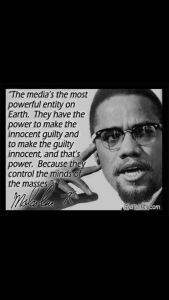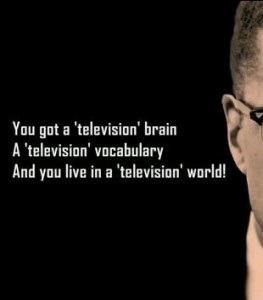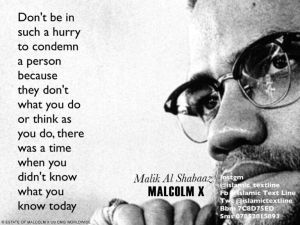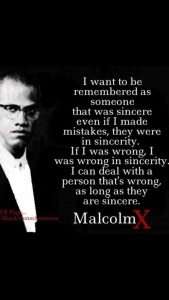Whenever a great person passes away, the tremors felt by the world are in proportion to the legacy that that person left behind. In this week’s blog post I reflect on seven lessons in leadership that we can learn from the life of the boxer Muhammad Ali.
- Leadership is most valuable during times of crisis
Ali grew up in the ‘Deep South’ of America at a time when black people were still considered inferior human beings to white people. As recently as the 1960s, African Americans were still forced to sit on buses in sections separate to white Americans.
When Ali rose to prominence, the black community in America was suffering from despair, disheartenment and a lack of confidence.
It was in this atmosphere that Ali demonstrated leadership. He realised that wallowing in victimhood restrains a community from growing and moving forward. And so he exhorted his people to do something to change the world around them, rather than sit and cry about it:
“Impossible is just a big word thrown around by small men who find it easier to live in the world they’ve been given than to explore the power they have to change it. Impossible is not a fact. It’s an opinion. Impossible is not a declaration. It’s a dare. Impossible is potential. Impossible is temporary. Impossible is nothing.”
2. Every great leader in history suffered for their beliefs and were reviled before they were revered.
Change is hated by man because people prefer the status quo. No-one likes change, especially those in power.
Once Ali began to encourage his people to believe in themselves, that they did not have to accept the world for what it was, that they could do something to change their lives, he was considered a threat and punished for his beliefs. He was stripped of his title, fined and sentenced to 5 years in prison.
In the eyes of the law, Ali was a convicted criminal. But this did not prevent billions of people around the world venerating him until and after his death.
“I am America. I am the part you won’t recognize. But get used to me. Black, confident, cocky; my name, not yours; my religion, not yours; my goals, my own; get used to me.”
3. Just like cowardice is contagious, so is bravery
In the Quran, fleeing the battlefield is considered a major sin because of the infectious nature of cowardice. When one person flees the battlefield, he injects seeds of cowardice and fear into the hearts of those around him and causes them to flee too.
But likewise, when one man stands up and takes a brave, principled stance, he encourages others to be brave too.
“To be a great champion, you must believe you are the best. If you’re not, pretend that you are.”
4. Leadership is not just about talking the talk, it is about walking the walk
During my years in prison I saw many people who talked tough out in the world, but crumbled to pieces once inside a prison cell. Some of them even turned into rats. Talk is cheap, but action is costly.
Muhammad Ali did not just openly declare his opposition to going to Vietnam to fight. He declared that he was prepared to go to prison, give up boxing and sacrifice everything that was dear to him, for the sake of holding true to his principles.
And true to his word, he was stripped of his title and could not box for several years.
“I have been warned that to take such a stand would cost me millions of dollars… I have nothing to lose by standing up for my beliefs. So I’ll go to jail, so what? We’ve been in jail for 400 years.”
5. The importance of being on the right side of history
Many of the people lining up to venerate Muhammad Ali today were the same people who demonised him when he was disgraced for refusing to go and fight in Vietnam.
As for the few who supported Ali when he was disgraced, they turned out to be on the right side of history. The rest of the American public soon turned against the Vietnam war and the United States brought its troops home.
Nelson Mandela suffered the same fate. The same people who castigated Mandela as a convicted terrorist later lined up to pay tribute to him once the whole world realised that he changed the world for the better.
“The service you do for others is the rent you pay for your room here on Earth.”
6. Publicly accepting your errors of judgement is a sign of strength, not weakness
The strong leader does not run away from his mistakes; he acknowledges them and learns from them. Muhammad Ali first joined the black supremacist sect ‘Nation of Islam’ but once he realised what they were about he publicly disassociated himself from their racist message:
“Hating people because of their color is wrong. And it doesn’t matter which color does the hating. It’s just plain wrong.”
7. People respect you more when you stick by your principles, than when you live your life to please people
Many people did not like some of the things that Muhammad Ali said, or the way that he said them. But he never once cared what people thought of him. He was proud of his beliefs, his lineage and his heritage. He realised early on in his life that if he was to spend his life trying to please people, he would waste his life.
“I know where I’m going and I know the truth, and I don’t have to be what you want me to be. I’m free to be what I want.”
Under the witty, fast-talking, charming man was a humble individual who really loved the world and cared about its people. He realised that he was not going to live forever so he spent his days on earth trying to carve a positive legacy that would remain long after he departed.
“Live every day as if it were your last because someday you’re going to be right,”he used to say.
And on Friday 3 June 2016 Muhammad Ali was right. May Allah have mercy on him.

 “I have been blessed to visit the Holy City of Mecca, I have made my seven circuits around the Ka’ba, led by a young Mutawaf named Muhammad, I drank water from the well of the Zam Zam. I ran seven times back and forth between the hills of Mt. Al-Safa and Al Marwah. I have prayed in the ancient city of Mina, and I have prayed on Mt. Arafat.” “There were tens of thousands of pilgrims, from all over the world. They were of all colors, from blue-eyed blondes to black-skinned Africans. But we were all participating in the same ritual, displaying a spirit of unity and brotherhood that my experiences in America had led me to believe never could exist between the white and non-white.”
“I have been blessed to visit the Holy City of Mecca, I have made my seven circuits around the Ka’ba, led by a young Mutawaf named Muhammad, I drank water from the well of the Zam Zam. I ran seven times back and forth between the hills of Mt. Al-Safa and Al Marwah. I have prayed in the ancient city of Mina, and I have prayed on Mt. Arafat.” “There were tens of thousands of pilgrims, from all over the world. They were of all colors, from blue-eyed blondes to black-skinned Africans. But we were all participating in the same ritual, displaying a spirit of unity and brotherhood that my experiences in America had led me to believe never could exist between the white and non-white.”




